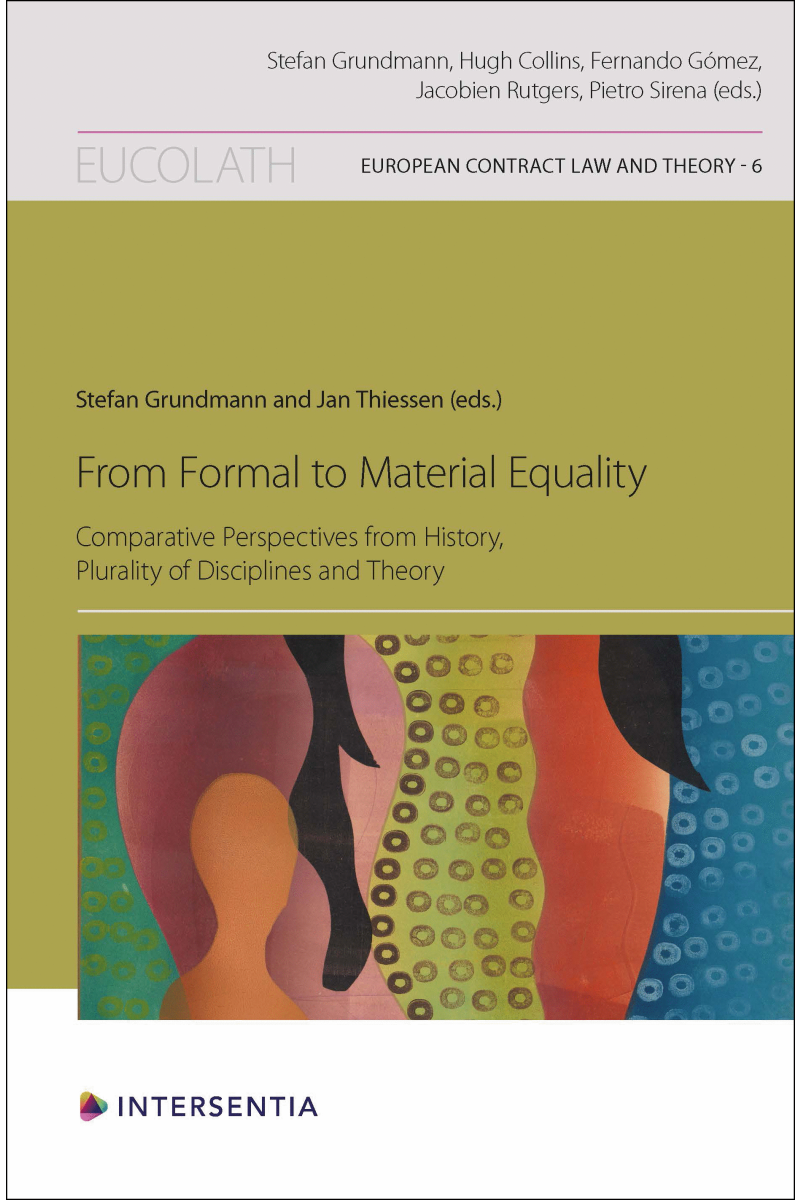 maestro
mastercard
visa
maestro
mastercard
visa

From Formal to Material Equality
Comparative Perspectives from History, Plurality of Disciplines and Theory

Equality has been seen as the core of any quest of justice since Aristotle’s Nicomachian Ethics. Reaching not only situational equality, but equality in status, however, had not been achieved until modern times. The father of ethics and his systematic enquiry into the concept of justice did not have any problems with foreigners without rights, women as second-class citizens and enslaving people – nor did antiquity at large, medieval era or even the high renaissance. While suum cuique (treating equal issues equally and unequal issues unequally) had been in place since antiquity and Cicero, personal status still had to wait to be recognised as a target of equality concerns. Related to this, no agenda was designed for achieving a paradigm reaching beyond mere formal equality, which only implies treating same things formally the same, and the material quest for equality has come to the fore as a vision only very recently. This book explores these issues – from general equality to equality also in personal status, hence also anti-discrimination, and the change from formal to material concepts of equality – in time and in theoretical approaches. In time, it describes firstly how the equality of indigenous people in Latin America was originally developed as a postulate on the basis of the Bible (all men are similar to God) and from that also as a postulate of equality in law. It further describes how this postulate became a rule of natural law and then a powerful political value, also for the masses and daily reality, in the French Revolution (and in the US), then as posited law. In the theory and history of philosophical thought, two questions are discussed in particular. The first is how and whether ‘more material protection’ cannot only be conceived for freedom at all, but as well for equality, even if it is so contingent in times and diverse societies (‘what is equal’)? The second is whether – beyond personal status – an absolute equality right exists nowadays, namely absolutely equal dignity for human beings? This discussion is followed by how to integrate equality into economics, so targeted towards differentiation in all matters, and efficiency of selection. It is further followed by how sociology’s prime quest nowadays might well be the very core of the question: the search for more material protection, namely against systemic discriminations, and such a search even in the toughest contexts such as digitalization.
Stefan Grundmann is Professor of Private and Business Law and Legal Theory at Humboldt University and has published large treatises on European Company Law, Contract Law, Banking and Capital Market Law, New Private Law Theory.
Jan Thiessen is Professor of Private Law, Contemporary and Commercial Legal History at Humboldt University. His main research interests in legal history focus on corporations, interferences between law and economic crises and law and lawyers in the context of national-socialist Germany.
| Type of product | Book |
|---|---|
| Format | Paperback |
| EAN / ISSN | 9781839702778 / 9781839703461 |
| Series name | European Contract Law and Theory |
| Weight | 500 g |
| Status | Available |
| Number of pages | viii + 148 p. |
| Access to exercice | No |
| Publisher | Intersentia |
| Language | English |
| Publication Date | Jan 12, 2023 |
| Available on Strada Belgique | No |
| Available on Strada Europe | No |
| Available on Strada Luxembourg | No |
Downloads
- Table of Contents and Preliminary Pages
- From Formal to Material Equality: Key Insights from History and in a Multidisciplinary Perspective
- The Same Human Nature: Some Approaches to Equality in Law
- Two Centuries of Private Law Theory on Formal and Material Equality
- Equal Dignity of Human Beings: The Philosophical and Methodological Foundations of Private Law
- Equality between Efficiency and Distribution: A Law and Economics Reconceptualisation of a Principle of Justice
- Dimensions of Equality in Private Law: Translating between Law, Society and Technology